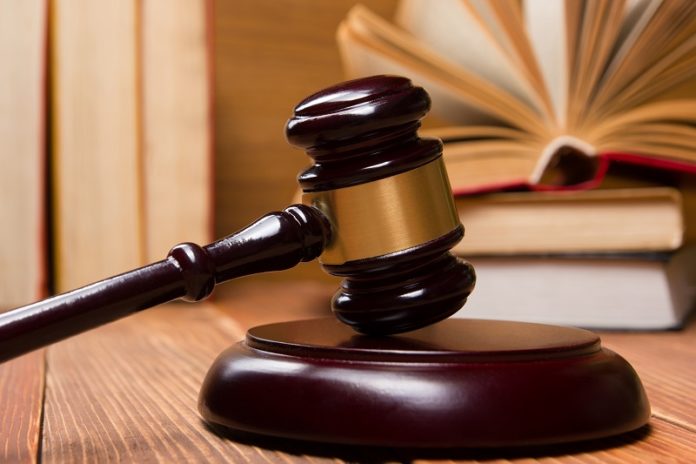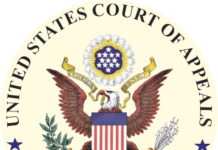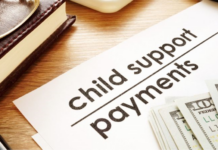A Sedgwick County gym is testing the legal waters over whether state government should cover revenue losses suffered amid the economic shutdown during the pandemic.
Omega Bootcamps and its owner, Ryan Floyd, are seeking compensation from the state for when the gym was closed while stay-at-home orders were in place to control the spread of COVID-19.
The lawsuit, filed in Sedgwick County District Court, is making a type of “takings” claim that is generally made when government takes private property for public use.
It reflects a new tactic seen nationally as businesses resist efforts by state and local government to impose restrictions on mass gatherings and movement.
The gym owner is arguing in this case that he’s entitled to compensation under state law because the government assumed use of the property as it undertook efforts to contain the spread of the virus.
Lawyers in the case say they believe their claim under state law doesn’t have to meet the same standard that would be required of regulatory takings cases made under the U.S. Constitution.
The lawsuit contends the gym owner is entitled to compensation under the state’s emergency management law, which provides compensation for the taking or use of property if it is “commandeered or otherwise used in coping with a disaster.”
“The plaintiff shouldered a disproportionate economic impact for the overall public good in coping with COVID-19,” the lawsuit says.
“Such targeting of specific businesses for the shouldering of disproportionate burdens for the public good constitutes targeted and excessive use of private property by the
government” under the state management law.
The gym was forced to close from March 25 to May 17 after the governor issued an emergency declaration that set the stage for limits to be placed on mass gatherings and movement.
The lawsuit further argues the gym suffered because it was prohibited from fully operating because it couldn’t offer in-person classes or open its locker rooms after May 17.
Ryan Kriegshauser, who represents the gym owner, said his client is only pursuing the alternative provided for by the state’s Emergency Management Act.
“This is exactly what the law says to do,” he said of the claim, adding that the law details a procedure for seeking compensation.
“They put a process in place if you have your business used,” he said.
“That’s exactly what’s happened when the government comes in and says you can’t operate your business and you have to do this or you have to do that.”
The lawsuit comes at a time when a new wave of takings claims are surfacing across the country as businesses fight back against state governments that are putting in place various restrictions to keep the spread of COVID-19 in check.
A report from the Congressional Research Service last March forecast the legal battles that would likely ensue from the government response to the pandemic.
“As communities respond to the … pandemic, the interests of governments and property owners may clash,” the report said.
“Governments have an interest in controlling spread of the disease, providing testing and treatment, and helping individuals and businesses cope with widespread disruptions of daily life.
“State and local governments pursue these interests through their police powers, which give them broad latitude to take measures addressing public health, safety, and the general welfare of those within their jurisdiction.”
Kriegshauser draws a distinction between his client’s litigation and other types of takings claims brought under the Fifth Amendment of U.S. Constitution, which says private property can’t be taken for public use without compensation.
Kriegshauser said his case is strictly limited to provisions of the state’s emergency management law, which provides for compensation in certain situations.
“This is exactly what the Emergency Act says to do if your business or property is used in coping with a disaster,” he said. “This is round peg into a round hole.”
Earlier this year, the Kansas Restaurant Association asked lawmakers to provide relief for businesses if they were forced to close under the state’s Emergency Management Act.
“This is a classic taking under the 5th Amendment,” lobbyist Scott Schneider told lawmakers on the Joint Committee on Economic Recovery.
“We can call it due process, a special claim against the state or against the county, but some avenue or redress needs to exist during a time when power becomes centralized, the courts shut down, and the government has granted itself large amounts of immunity.”
In other areas of the country, businesses have had trouble in court when seeking compensation for a “taking” under the U.S. Constitution’s Fifth Amendment.
Last month, the New Mexico Supreme Court declined to rule on a takings claim brought against the state over its response to the pandemic.
The court said the claim was undeveloped and there wasn’t enough evidence to consider the issue.
“It appears that some businesses were closed entirely by the emergency orders, while others have been operating on a limited basis, but the complaint offers virtually no details,” the New Mexico court ruled.
“We further note that constitutional regulatory takings claims generally ‘entail complex factual assessments of the purposes and economic effects of government actions.’”
In another case from Maine, a federal judge dismissed a takings claim made against the governor’s emergency health orders under the Fifth Amendment of the U.S. Constitution.
“Presumably, they were unable to sell products and services for a time, but plaintiffs have not cited any authority stating that the inability to sell goods and services is a taking
of their property. They have failed to state a takings claim,” the judge wrote.
Another takings claim was brought under the Fifth Amendment against North Carolina’s public health order, but a judge indicated it was unlikely to succeed.
















